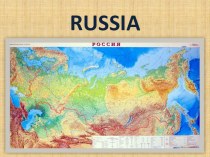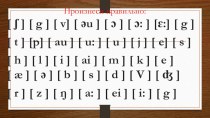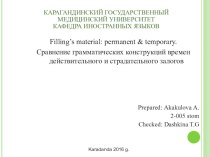- Главная
- Разное
- Бизнес и предпринимательство
- Образование
- Развлечения
- Государство
- Спорт
- Графика
- Культурология
- Еда и кулинария
- Лингвистика
- Религиоведение
- Черчение
- Физкультура
- ИЗО
- Психология
- Социология
- Английский язык
- Астрономия
- Алгебра
- Биология
- География
- Геометрия
- Детские презентации
- Информатика
- История
- Литература
- Маркетинг
- Математика
- Медицина
- Менеджмент
- Музыка
- МХК
- Немецкий язык
- ОБЖ
- Обществознание
- Окружающий мир
- Педагогика
- Русский язык
- Технология
- Физика
- Философия
- Химия
- Шаблоны, картинки для презентаций
- Экология
- Экономика
- Юриспруденция
Что такое findslide.org?
FindSlide.org - это сайт презентаций, докладов, шаблонов в формате PowerPoint.
Обратная связь
Email: Нажмите что бы посмотреть
Презентация на тему по английскому языку Тунгусский метеорит
Содержание
A little over 100 years ago, on the morning of 30th June 1908, there was a huge explosion in the sky above the Tunguska River in Siberia. It was as if a giant bomb had gone
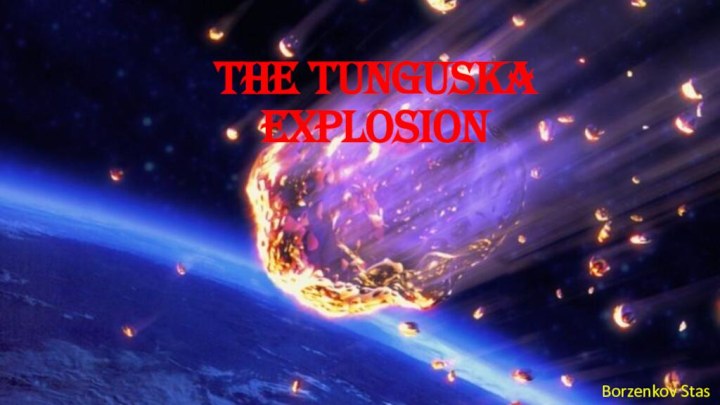
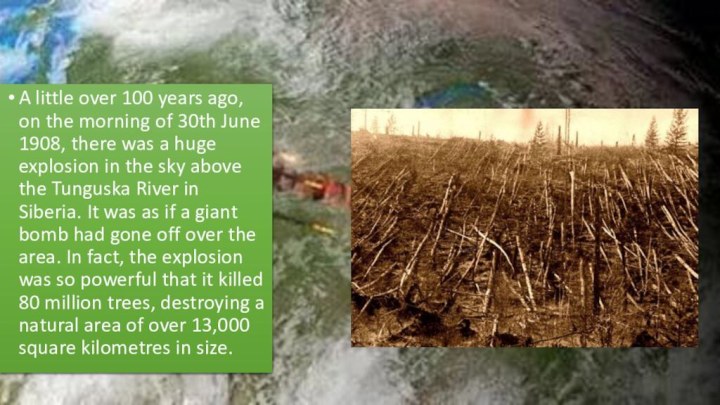
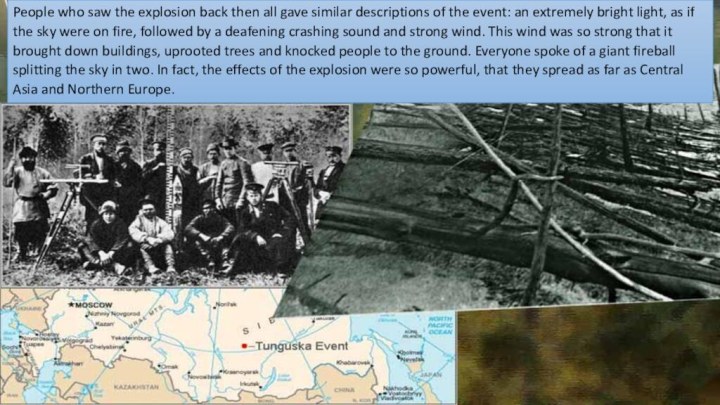
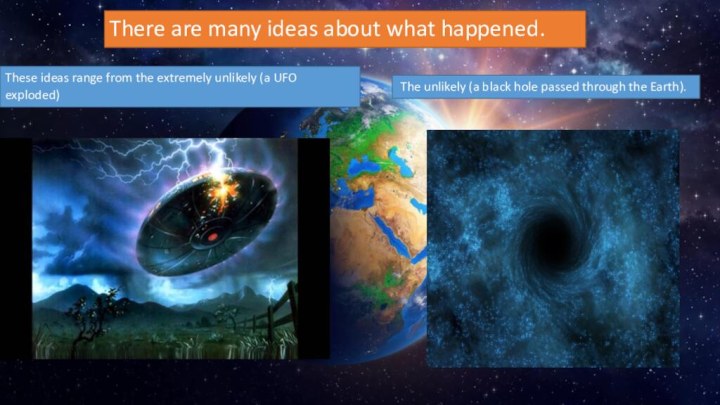
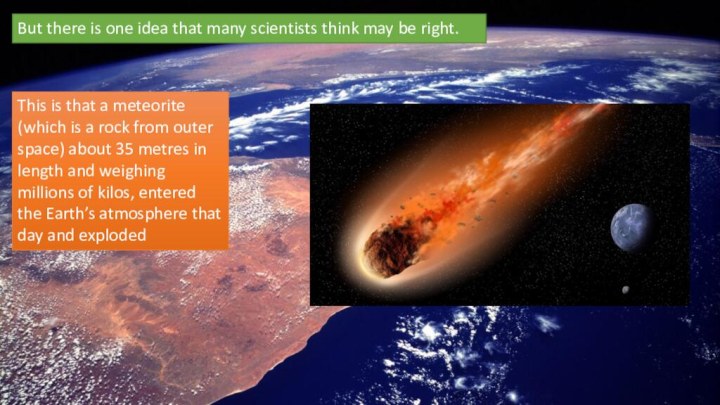
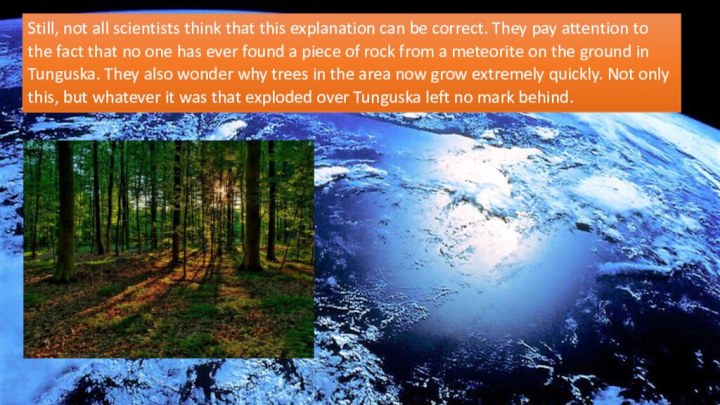
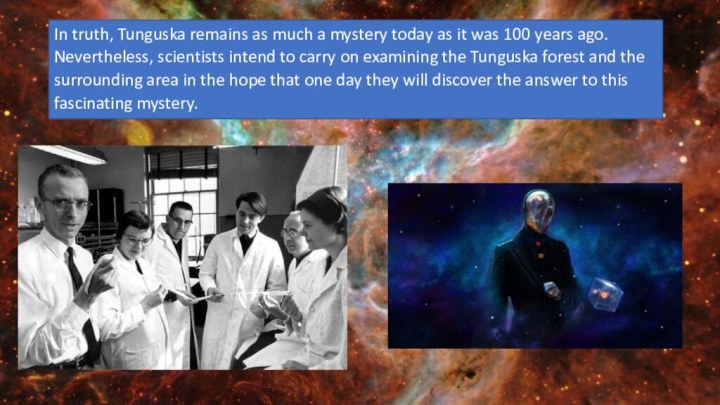
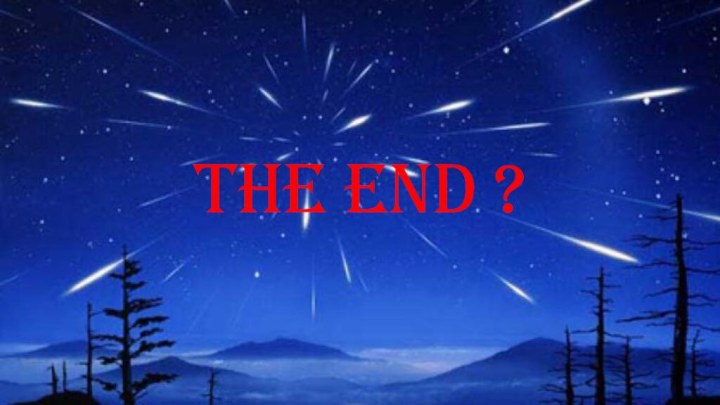
Слайд 3 People who saw the explosion back then all
gave similar descriptions of the event: an extremely bright
light, as if the sky were on fire, followed by a deafening crashing sound and strong wind. This wind was so strong that it brought down buildings, uprooted trees and knocked people to the ground. Everyone spoke of a giant fireball splitting the sky in two. In fact, the effects of the explosion were so powerful, that they spread as far as Central Asia and Northern Europe.
Слайд 4
There are many ideas about what happened.
The unlikely (a black hole passed through the Earth).
These ideas range from the extremely unlikely (a UFO exploded)








